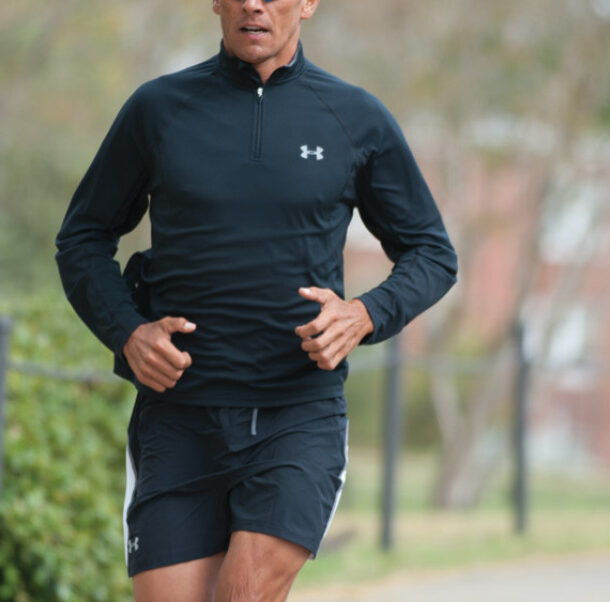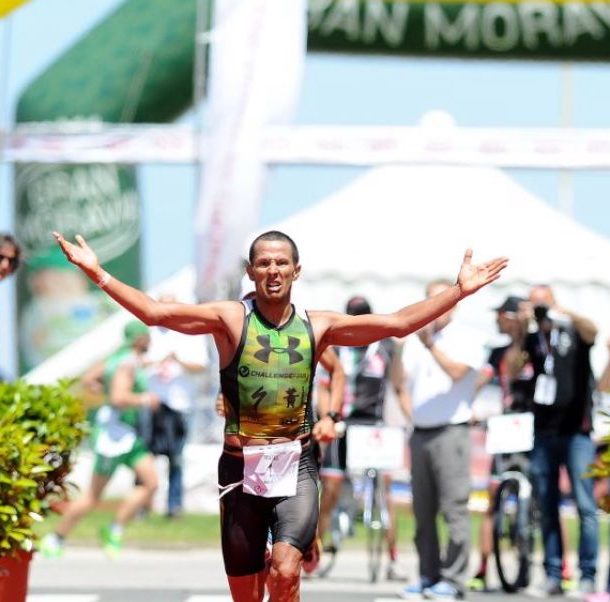
If you’re looking to become a sponsored athlete, Chris McCormack provides some guidelines to follow.
(Originally published in Triathlete Magazine January 2014.)
For many professional triathletes, sponsorship is the bread and butter of their existence. But it’s not just something that is confined to the professional ranks. Many age-group athletes chase support to help them on their journey through this sport.
For any partnership between a company and an athlete to truly be successful, it has to be a two-way street. After 20 years in this sport, many of my sponsors have been with me for many years. These are companies that supported me in my early racing years and have stuck with me for my entire career. After a while, you begin to appreciate the value of sponsorship from the company’s perspective — how the integration and actions of the athletes and events they endorse directly influence the brand itself. For every dollar spent to support an athlete, another dollar at minimum needs to be spent by the company to truly leverage the deal. This is something I don’t think many athletes consider. It’s great to get free swag, but unless you can truly pay for that in added value for the company, then the sponsorship is simply a leakage from their budgets. It really is that simple.
I inked my first contract with Under Armour in 2004. I was looking for a company that I could grow with and that could support me on my journey to achieving success in this sport. Under Armour is a world leader in heat gear, and it was an introduction with founder Kevin Plank a few years earlier that made me pick up the phone and call him for some help. At the time this was a relatively moderate-sized company out of Baltimore that was still privately owned and growing year by year. They had nothing to do with triathlon, they didn’t make running shoes and they were considered a brand for American football. You couldn’t get a more unlikely synergy than an endurance athlete with shaved legs who races Ironman events around the world and a company that makes apparel for football players. Still, I jumped on a plane and flew to Baltimore to sit down with Under Armour and talk about how they could help me athletically.
I was not looking for an endorsement deal. I wanted to work with a company that I believed could help me with my issues in the heat and humidity of Kona. My goal was athletic success, and I viewed this company as one that could help me achieve this. We spent five days in Baltimore, and we developed a racing kit that ultimately propelled me to success in Kona.
Kevin recently reminded me of this meeting. “You arrived in Baltimore as an athlete focused on a goal, and you identified with our company, that we may have the solution to help you,” he said. “Like athletes, companies have dreams and visions also, and what we are looking for in a partnership is someone who has direction and drive, but has the charisma and the talent to back that. No résumé or sports agent can sell that. It is something you show. I saw an athlete with belief and I saw an athlete with vision. This is inspiring, and this is what we look for in all our athletes.”
My advice to all those athletes who are chasing sponsorship: Start by showing a company what you bring to the table. Ask for less and over deliver. Your value is determined by your influence, and your influence is directly correlated to your personality, performances and values. Sponsorship costs a company, and this cost has to be measured against a value for them. If you can present this value in real terms, then the entire sponsorship puzzle is easier to fulfill from both sides, and I think no one enters or leaves this relationship feeling short-changed.
Who are you and what do you represent? Sure you are an accomplished athlete, but why should people and companies buy into you? Don’t dilute your own brand by linking with companies just because they offer you something for free. Ask yourself if it’s truly a good fit: Does it align with your core values? Does it suit you as an athlete? And, ultimately, is this partnership something that you can make successful? When you honestly assess the answers, you might walk away from a few potential deals, but that’s OK — the companies you ultimately link with will share your vision.
It is great to have sponsors and it is even better to represent them well. Longevity with any sponsor is the true measure of a sponsorship working, and my advice to anyone looking for support in the coming season is to ask yourself: Is this a company you see yourself working with for quite some time? Do they fit what you want as an athlete and where you are going?
Companies are looking for talent and spark and something that is marketable — not just good race results. Take the time to assess what you really need from any deal you undertake and understand exactly what the company wants from you.
Philosophy
“Great things happen to people who make great things happen.”
Navigate
chris@macca.com
Terms & Conditions
Privacy Policy

